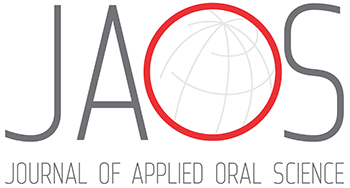EDITORIAL
Can we afford the increasing number of Dental Journals?
During the early days of last November, editors, authors, contributors, etc., gathered in Belo Horizonte, MG, for the 3rd International Meeting of Scientific Editors of Dental Journals. Among several issues discussed, it was evident that the number of dental journals that had been recently initiated in Brazil is increasing. At a first glance, I see no problems with that, particularly because I do believe that no journal is better than another and that every journal has an intrinsic potential to be a well recognized source of information in its field. However, we have to address questions regarding the sustainability of each of these journals in the "publishing market". While every journal has its own merit, fortunately or not, their "quality" is classified by parameters assigned by regulatory institutions. Additionally, quality ranking is also determined by the inclusion of the journal in some specific international database sources such as SCIELO and MEDLINE. Therefore, it is acceptable that every new journal seeks for organizing its structure in such a way that they accomplish the requirements for inclusion in such database sources. One of the requirements is related to the composition of the Editorial Board and Board of Reviewers. These should be composed of researchers who are capable of critically reviewing every article that is submitted for publication. This is where the problem resides. To judge one's capacity of properly reviewing a manuscript is quite subjective and very difficult task for editors. In general, reviewers are chosen based on their regularity of publications in each specific topic, which infers that they are knowledgeable enough in that topic to critically review the manuscript without conflict of interest. Based on such assumption, we will soon run out of reviewers who would be willing to properly examine a submission. The number of authors is much larger than the number of reviewers who fit into the adequate criteria for being a reviewer. Every manuscript submitted requires at least two reviewers for proper analysis. We are currently facing a situation that reviewers for one journal are also reviewers for others journals as well. This implies that good reviewers are receiving more manuscripts to evaluate than they can afford to return in due date. Additionally, good reviewers are usually authors of regular publications, and they also need time to handle their own manuscripts. One way to overcome such problem is to seek for international reviewers. However, that requires the manuscripts to be in English and we also have to deal with the fact that international good reviewers may also be committed with other international journals as well. Critically evaluated submissions are the key for the success of a journal. In order to get that, we can not overload our reviewers. Without an adequate number of good reviewers who would be willing to devote their time to improve the quality of the submissions, we have to question if we can afford to increase the number of dental journals.
Editor
Publication Dates
-
Publication in this collection
20 Jan 2006 -
Date of issue
Dec 2005

